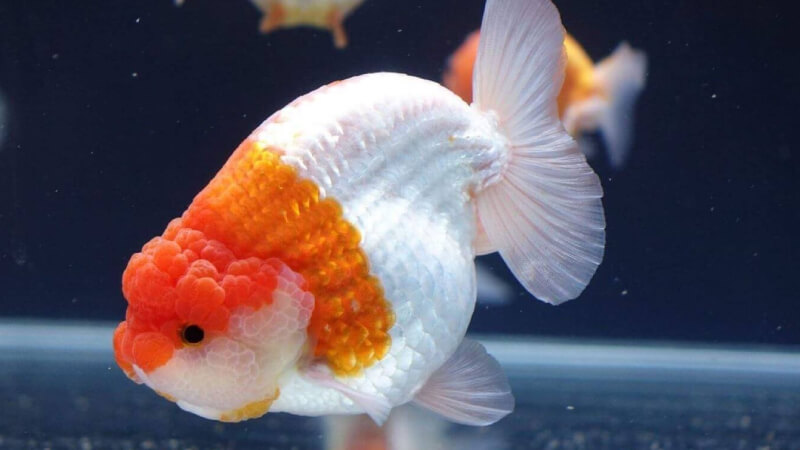The place do our aquarium fish come from?
We might not always want to suppose too arduous about it nevertheless could also be uncommon to consider that our fish (or probably merely their ancestors) as quickly as acquired right here from the wild, nevertheless the probabilities are excessive that the fish in our tanks at dwelling are in all probability captured from the wild, or bred in captivity.
It has been reported that over 90% of the tropical fish inside the ornamental fish commerce are bred in fish farms internationally in South East Asia; whereas for lots of freshwater species, it has been reported that an estimated 90-95% of the livestock are from Asian and Japanese Europe fish farms. Proper right here, Ruth McDonald explores the journey of fish from their origins to our properties.

Phrases by Ruth McDonald
I’ve new fish and they’ve achieved further travelling than I’ve this yr. Per week up to now that they had been in a tank in a extreme rise establishing in Singapore 7000 miles away. Then that they had been rigorously packed and positioned on a plane to the UK, by the crimson tape at Border Administration, then each taken to a wholesaler, or direct to the shop, and finally I went and checked out them inside the tank, paused over the value, and decided to buy a small group. Now they’re exploring their new dwelling. It’s all pretty spectacular when you start to think about it.
One tank has some wild caught fish, the following the one actual occupant was bred inside the depths of Derbyshire, he’s moved about 25 miles in his life, and now these new guys. We might consider the pure range of our fish, nevertheless the place do these individuals come from? What can we do to ensure we do our biggest for our fish, the environment, and future shares of the fish inside the wild.
Wild Caught Fish

Is there a further contentious matter than taking animals from the wild? At one end of the scale is the idea that little one fish are ripped from their households, decimating wild shares. On the totally different end that wild caught fish are saving poverty stricken households and the pure environment. The truth is inside the middle, and at every ends of the scale.
I was first launched to the wild caught commerce as a child, watching the fishermen pull up their traps from coral reefs inside the Caribbean. On some days they took care of the fish they caught. Transferring them to water stuffed holds on their small boats, checking for indicators of illness, going into shore earlier to minimise the time the fish had been inside the boat. The rest of the week they hauled traps up faster. Tossing these self similar fish proper right into a dry preserve, taking far more, and taking no care to take care of them alive.
Some fish had been caught for the pet commerce. Others as meals. Within the equivalent means corals are collected and punctiliously shipped for the aquarium commerce, or for jewellery and trinkets for the vacationer commerce. Pulling fish out of the wild is a complicated subject, nevertheless dismissing it out of hand is as unhealthy as embracing it with none thought or warning.
Commerce not assist
Have you ever ever heard of Tongareva inside the Central Pacific? Crusing there could also be stepping once more in time. The low lying coral atoll is hidden until you is perhaps just about upon it. This isolated neighborhood is a form of that depleted fish shares and altering local weather are hurting.
There was as soon as pearl farms on the island providing jobs, nevertheless algae blooms and a virus wiped them out. That’s thought of one in all many islands the world over that need some kind of commerce, and the shares of reef fish that teem of their lagoons might current that. Correct now rising restrictions on wild caught fish, pushed by rhetoric not science, means no one is eager to position the funding into this type of mission. So the islanders eat the fish and rely upon abroad assist to take care of them alive.
Problem Piaba

“Buy a fish, save a tree.” It’s an unimaginable phrase, and the work Problem Piaba are doing on the underside backs that up. Working with Brazilian communities they gather data, work on rising protocols on cope with the fish to minimise stress, and any hurt to the ecosystem common. Their a very long time of research has confirmed that seasonal assortment of the fish has not harmed wild shares.
The commerce in fish permits distant communities to earn a residing in a sustainable means, gathering the fish from the flooded forests. These communities keep in areas in peril from logging and mining. Nevertheless this enterprise is under danger itself. Between 2006 and 2015 the number of fish exported from Brazil plummeted from over 26 million, to decrease than 3 million.
Cheaper captive bred stock, and a nasty image of untamed caught animals are driving parts, alongside the seasonal nature of this enterprise. Nevertheless definitely we’re capable of anticipate issue?
What variety of?
Decrease than 1 / 4 of UK aquarium fish are marine, nevertheless 90% of those are wild caught. About 5% of up to date water fish are wild caught. This data is the freight weight of fish being imported, so there may be some variations counting on weight of the actual fish and the amount of water they need.
Wild caught isn’t just for the aquarium
The number of fish caught for the aquarium commerce is tiny compared with that caught for meals. For fish there are lots greater threats than being captured for the aquarium. Habitat loss is driving many species to extinction.
Take one in all many worlds rarest fish, the Pink Handfish (Thymichthys politus), Dr. Tyson Bessell from the Handfish Problem was good enough to answer a few of my questions.
I requested in regards to the hazard of the fish being poached for the aquarium. He acknowledged that certain that was a hazard, nevertheless the true danger is sea urchins munching their means by pure habitats and breeding grounds. These urchins are multiplying unchecked on account of their pure predator, the lobster has seen a inhabitants decline as a consequence of fishing.
In situ conservation is so superior that you just should be there to know the entire aspects. Nevertheless there are people on the underside in diversified areas saying that by shopping for some sustainably wild caught fish, we’re capable of make an precise distinction. Equally we’ve got to keep away from these extraordinarily unusual species, for whom 10 or so individuals being eradicated is normally a big chunk of the inhabitants.
The unhealthy aspect of the speak

We don’t get to fake that the curiosity is absolutely innocent. The Banggai Cardinal fish is a small black and white marine fish that is threatened with extinction. Gathering for aquariums is doubtless one of many main causes, with 1000’s and 1000’s of fish taken from their native range as a result of the 90s.
Nonetheless the dearth of sea urchins and sea anemone populations are moreover contributing parts. The curiosity should take the blame the place wished, nevertheless the picture isn’t as straightforward as we’d like.
Fish bred in captivity
Three quarters of the entire fish in our retailers are captive bred, and most of these are fabulous testimonies to the work of the breeders and farmers to provide stock. Nevertheless there could also be moreover two sides to this story.
In the event you occur to take a fish from the wild it has a certain well being that comes from having survived. That’s not the case with captive bred species. Hybrids, balloon fish, extreme morphs, and even genetically modified species might be discovered. A pal was in search of to buy a betta, and her first concern. May it swim. A tragic question just a few fish.

10 worldwide places dominate the imports to the UK, comprising 88% of the entire value of fish imported, these are Singapore, Japan, Israel, Indonesia, Sri Lanka, Thailand, USA, Maldives, Philippines and Colombia. Of those Singapore dominates all of the market, significantly the captive bred fish, considering how small a nation it is, that comes as one factor of a shock. Nevertheless this in my opinion is doubtless one of many precise success tales. Singapore wanted to scrub up their intently polluted rivers. They made it simple for pig farms and totally different such industries to make a swap to a cleaner kind of farming. Now tropical fish are a thriving enterprise. Rivers are cleaner and extra wholesome, and wild otter populations are once more. The enterprise is regulated intently, and whereas any farm might have factors, there is not an enormous scale farmer available on the market that is making an unlimited income from sickly and diseased fish.

That’s to not say that captive bred fish will all be healthful. A small share shall be coming in from producers in a lot much less regulated nations that use antibiotics barely than good husbandry to take care of the fish alive. Some analysis confirmed that 27% of guppies from a single farm had been contaminated with camalanus worms, and there are some species of fish that are always dealt with as within the occasion that they might be contaminated with Mycobacterium. It pays to pay that bit further in plenty of circumstances to ensure extra wholesome fish.
Escapees
Take into consideration you is perhaps diving in a river in South Africa, you’re anxious about Bull Sharks, crocodiles, and hippos. A cichlid swims earlier you, for a second you watch it sooner than you realise there are fish surrounding you, all from the unsuitable continent. This African river is teeming with fish from South and Central America.
This was exactly the place I found myself in 1999. A very long time of no exports meant that there was no funding obtainable for the fish farm upriver. One yr a storm had marched in from the Indian Ocean, washing out the ponds of varied tropical fish, now that they had been thriving.
In May of this yr, a dam burst on a fish farm in Malaysia, releasing a reported 15 000 arowana. Those that had been recaptured died in a few days, nevertheless there are tales that some made it to the junction of the first river. On this case they might be a neighborhood species, and might restock the realm, or 15 000 predators may be a disaster for the native ecology. Solely time will inform.
Domestically bred fish
For me one in all many precise highlights of the curiosity is having a nice cup of tea in one other individual’s fish house. No, we’re not prepared the place all of our fish can come from a fish house merely down the road. Nevertheless some can. Be part of your native membership, or specialist society and you will have an unimaginable likelihood to get some further unusual fish.
On the face of it breeding domestically is an efficient issue. Steer clear of the value and the stress of transport the fish internationally. Be further acutely aware of the native market, protect costs, every monetary and environmental, to a minimal.
I would like it had been so. It is cheaper to fly fish in from tropical climes and by no means have to stress about paying the heating bill.
Do I need a licence to advertise fish?
The highway between a hobbyist and a enterprise is solely £20 per week flip over. That’s a whole of £1000 a yr. While you’re legally a enterprise, you need a licence to breed fish, and which means insurance coverage protection, and a licence worth, and leaping by the hoops set out by your native council, and your landlord or mortgage agency couldn’t resembling you working a pet breeding enterprise from a residential property. Are you going to allow people to come back again to your own home to collect the fish? Now likelihood is you may be seen as a fish retailer and want all the safety aspects that goes with that. It’s important to widespread inspections, to take care of detailed details about your water prime quality, and make sure you attend widespread teaching, oh and likelihood is you may should take a qualification.
How do I do know the place my fish come from?
Ask the shop earlier than you buy, they should have the power to find out. Evaluation the species and confirm if there any know factors. Are they being collected from the wild in an unsustainable means? Are they recognized to be carriers of express sickness?
Does the care matter?
Evolution isn’t that fast, so the parable that captive bred could also be saved in any outdated water, whereas wild caught need defending in very precise circumstances is solely that, a fable. Certain captive bred will are usually considerably further versatile, and wild caught might have some further specialist care whereas they get higher from the modifications which have occurred to them, nevertheless we must offer any fish the circumstances they need to thrive.
It’s is crucial to quarantine any fish you buy, and I would say to worm any new comers, not merely wild caught fish.
Sustainability is important
Sustainability merely implies that generations into the long term these fish will nonetheless be obtainable. Be that from healthful wild stock, rigorously managed captive breeding, or domestically bred specialist stock.
With attributable to OATA for supplying the information and numbers, and Dr. Bessell from the Handfish Conservation Problem for taking the time to answer a complete lot of questions.






